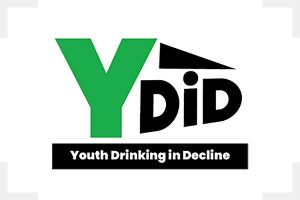About the project
Alcohol consumption has fallen sharply among young people in the UK and we do not know why. Despite comparable trends across Europe, North America and Australia, we know little about this transformation in youth behaviour or what factors are driving it. In particular, we know little about which young people are drinking less, whether youth drinking is concentrating within particular high-risk groups, whether new inequalities are emerging and how all of this relates to wider changes in youth culture.
The ‘Youth Drinking In Decline’ (Y-DID) project is a four-year Wellcome Trust-funded collaboration between two research teams at the University of Sheffield: the Sheffield Alcohol Research Group and the Centre for the Study of Childhood and Youth. It aims to provide the most detailed analysis to date of the nature and drivers of recent reductions in alcohol use among 11-24 year-olds in England. The project is divided into two primary work packages which are described below. These will be brought together in a third integrative work package to produce mixed-method findings.
For more information, contact: Professor John Holmes (john.holmes@sheffield.ac.uk)
Work Package 1: Secondary analysis of survey data.
Aim
To describe and test explanations for the decline in youth drinking in the UK.
Outline
WP1 will use a series of national and international survey datasets to explore which young people are drinking less and why. We will examine trends in abstention, how often and how much young people drink, the characteristics of their drinking occasions and the shifting relationships between alcohol use and young people’s other health and leisure-related activities. We will also examine relationships between youth drinking and factors that may explain the decline including social norms, access to alcohol and increased use of internet-related technologies
Work Package 2: Qualitative data collection and analysis with multiple birth cohorts.
Aim
To understand changes and continuities in youth drinking and its relationship to broader youth culture.
Outline
WP2 will collect data from young people and adults in the Sheffield area who belong to one of four age cohorts. These data will provide insights into how the position of alcohol within broader youth culture has evolved over time, what youth drinking has looked like for different generations and why change has happened.

